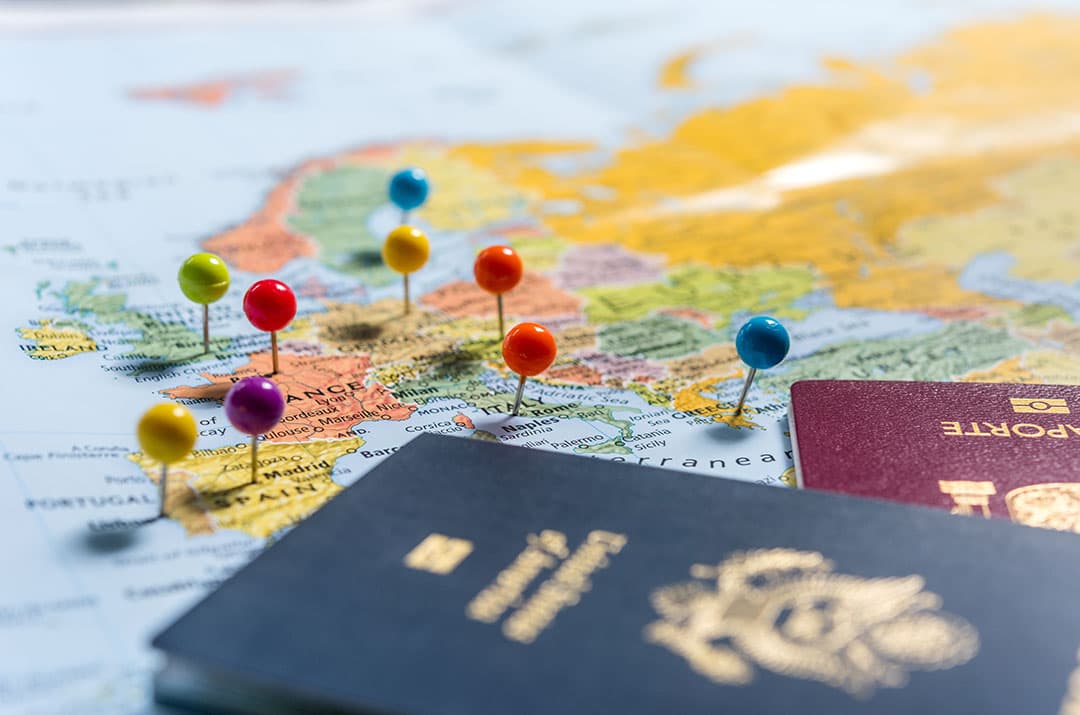- Home
- Blog
- Life Abroad
- Moving Overseas for a New Career - My Perspective

Moving Overseas for a New Career - My Perspective
26 de março de 2019 — 6 min read
By Scott Redmond, XE Managing Director, North America
I recently moved my family and career from Australia to the United States. This is my third overseas move for professional reasons. In a moment of clarity, I realised, that while I am not a seasoned expert at intercontinental migration, I seem to be getting progressively better at the journey.
After you experience the adrenaline rush of accepting an overseas posting, you are likely to arrive at a moment of pure reality. This can happen when a global mobility expert gives you a 10-page long checklist of activities. Equally, the gravity of the situation really hits you when you realise the vastness of the distance from your friends, extended family and even your favourite beaches is going to be very real.
There are indeed experts on the topic however I wanted to share three of the lessons I learned from my most recent move since from my first.
1. People are Fragile
My wife grew up as the daughter of an expat. She spent her life living in Singapore, Hong Kong, USA, Saudi Arabia and the UK. My 5-year-old was born in Hong Kong before moving to Australia as a toddler, along with our beloved English Bulldog, Stella.
My wife and son consistently rate highly for robustness on the “have passport, will move” scale. My wife becomes somewhat restless when we aren’t moving. My son, on the other hand, is of the belief we are on a perpetual holiday or “vacation” as he now calls it. Setting this aside, as you watch your fragile kitchenware being expertly wrapped, it’s worth spending some time considering how you intend to insulate your loved ones from the highs and lows of large-scale changes.
With an overseas posting, you are typically undertaking a role where you have a high degree of expertise in a theatre requiring rapid attention. To this end, you will find yourself having changed your previous work cadence almost immediately – you will be extremely busy. The same can not be said for your family members, who in some cases have sacrificed a career, education or lifestyle in order to support your career path aspirations. My advice on this is to make a concerted effort to help them establish a life, routine and connectivity to the new environment. You will need them in the best condition possible to succeed.

Photo by Megan Leong / Unsplash
2. Getting Settled is a Marathon, not a Sprint
The removalist, (or as Americans put it, moving crew) is coming in two weeks. Yet there are eight weeks until your furniture finally arrives in your new country. Concurrent to this, your visa is 6 weeks off following a consulate interview. You’ve already identified where you are going to live – therefore you should be settled in 10 weeks. Nothing could be further from the truth as there is a fundamental difference between setting foot on new soil and being truly settled.
You can expect a barrage of administration and bureaucracy on arrival. Let's not forget your old life will continue to haunt you as you wind up tax years, set ongoing arrangements for payments of mortgage and insurance policies, divert mail and the list goes on. It’s reasonable to expect to finesse this will actually take months to get sorted.
More importantly, you should estimate that it will be 12 months before you and your family are genuinely settled. My first realisation we were settled came when I noticed we had replicated some of the best, though more “mundane” aspects of our previous life. Like the neighbours dropping over for a barbecue, or arguing about whose job it is to take the trash out for collection each Wednesday night.
3. Move for the Right Reasons
Let’s agree for the moment that career progression is important. You can achieve this by changing the company you work for, or the role you’re in without the complications of international relocation.
To a great extent, your decision to take a foreign posting will be motivated by two key criteria:
a. The challenge of the role you have accepted, and all that it brings
b. Your sense of adventure
In this respect, you will not be disappointed. However, let's look at what you're putting on the table, and potentially, putting at risk:
Your Family, Friends and Familiarity.
These are likely the most important assets in your life—and it's very unlikely that will ever change.

Photo by Kevin Delvecchio / Unsplash
For me, accepting the opportunity to join XE came down to a combination of the company and its people. XE provides many of the support elements required to make international relocation as seamless as possible. But, more than that, its senior leadership team probably understands points one and two even better than I did.
You should be discussing those points with your chosen employer ahead of romancing yourself into the adventure. You won’t regret it.
A key enabler to making the move abroad a reality while balancing your obligations (both in your new country and the one you came from) are the abilities to:
Access your money without eroding your savings over the exchange rate.
Have your money transferred to where you need it when you need it.
To achieve these goals, I use the services of XE, the world’s trusted currency provider. XE’s money transfer service allowed me to have funds available in the USA to buy cars, pay landlords, and facilitate the long list of expenses common with relocation.
Now that I’m settled, I use XE to send savings back to Australia and to top up my mortgage payments. I use XE’s mobile app, which is supported by a 24/5 customer service team and provides me with fast, low fee money transfer—without the cumbersome process and expense of using a bank.
This makes me just one of the 300 million people who come to XE each year to power their international lives.
Related Posts

4 de novembro de 2024 — 5 min read

8 de outubro de 2024 — 2 min read

17 de julho de 2024 — 4 min read

17 de agosto de 2023 — 7 min read

17 de agosto de 2023 — 8 min read

17 de agosto de 2023 — 7 min read